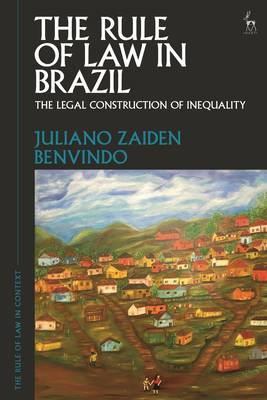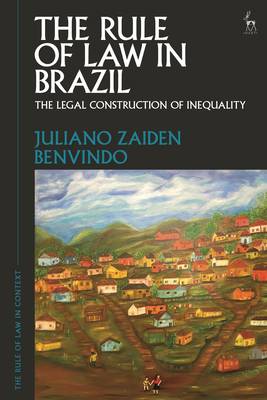
- Afhalen na 1 uur in een winkel met voorraad
- Gratis thuislevering in België vanaf € 30
- Ruim aanbod met 7 miljoen producten
- Afhalen na 1 uur in een winkel met voorraad
- Gratis thuislevering in België vanaf € 30
- Ruim aanbod met 7 miljoen producten
Zoeken
€ 101,95
+ 203 punten
Uitvoering
Omschrijving
This book provides a broad perspective of the functioning, evolution, and dynamics of the rule of law in Brazil. It stresses not only how the rule of law has developed in the legal system, but also how the political institutions and extra-legal organisations have transformed its foundations.
The rule of law is not a simple concept when it comes to defining the political, economic, and legal developments of a country like Brazil. Similar to many other Latin American countries, Brazil is a young democracy struggling with its longstanding extractive institutions and entrenched interests. It features, however, one of Latin America's richest constitutional moments, when civil society actively participated in drafting the most democratic constitution in the country's history. Brazil has since strengthened its institutions and the rule of law, but the road toward consolidating them has been challenged by inequality and the legacies of that authoritarian past. The book explores how Brazilian democracy has dealt with the high levels of social inequality and the authoritarian mindset that still play a big role in its fate, and asks whether the country's democratic achievements and institutional framework are sufficiently strong to enforce the rule of law as an imperative for Brazil's development, especially in times when the country is most in need of them.Specificaties
Betrokkenen
- Auteur(s):
- Uitgeverij:
Inhoud
- Aantal bladzijden:
- 264
- Taal:
- Engels
- Reeks:
Eigenschappen
- Productcode (EAN):
- 9781509961900
- Verschijningsdatum:
- 25/01/2024
- Uitvoering:
- Paperback
- Formaat:
- Trade paperback (VS)
- Afmetingen:
- 156 mm x 234 mm
- Gewicht:
- 371 g

Alleen bij Standaard Boekhandel
+ 203 punten op je klantenkaart van Standaard Boekhandel
Beoordelingen
We publiceren alleen reviews die voldoen aan de voorwaarden voor reviews. Bekijk onze voorwaarden voor reviews.







